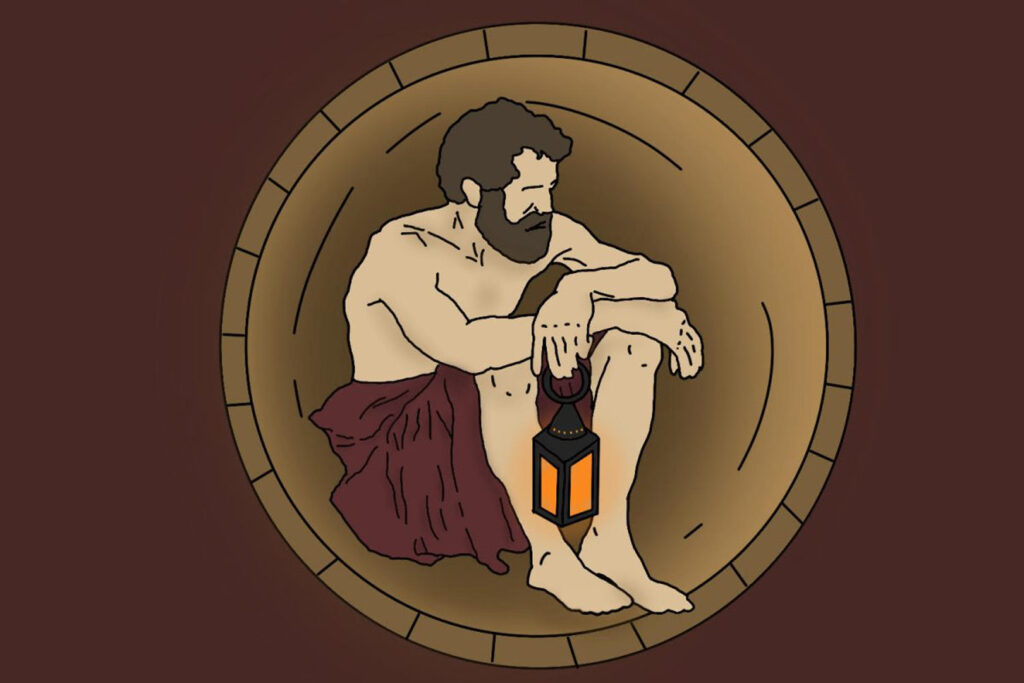
This story is syndicated from The Standard, the newspaper of The American School in London in London, England. The original version of the story ran here.
Growing up around the world has been deeply enriching, offering me a variety of perspectives on how history can be perceived. Each of the countries I have lived in has carried a unique historical narrative: one of pride, pain or purpose. Understanding how a country sees itself, including its role in history or global politics, isn’t something that can be summarized on a Wikipedia page — it often takes boots on the ground, an open mind and the willingness to do some critical thinking. It’s important to remember that history isn’t rendered in black and white but shades of gray.
In today’s classrooms, on the nightly news, and even on our own digital devices, one particular method of historical interpretation has become all too popular: cynicism. Being cynical is easy and can offer a satisfying, even provocative answer to the world’s hardest questions. But these answers are reductive and oversimplified–the scholarly equivalent of a viral sound bite or a back cover blurb, promising more than what lies beneath it. Taking the time to think critically while accounting for historical context, cultural perspective and point of view often creates more questions than it answers. People want answers, and they want them as soon as possible. If those answers align with their personal bias or grievances, all the better.
When you are seduced by the easy answers or submit to self-serving popular opinion, you are falling for the cynic’s trap.
Philosopher Sir Karl Raimund Popper once wrote that this view arose in part from the nationalist and racist narratives that crumbled with Hitler’s regime, according to the Harvard Review of Philosophy. The nationalist interpretation of history is framed as a struggle between nations and races, leading to justifications for war and exploitation. This interpretation gives discontented people a scapegoat to point to and ascribe an easy explanation to.
In the aftermath of Hitler’s collapse, the Marxist interpretation, commonly called historical materialism or the materialistic conception of history, gained popularity, according to Britannica. It shifted the focus toward viewing world history through a pretense of class struggles. This approach had one single purpose: to offer scientific proof that socialism must prevail — owing this idea to a device called historical necessity. With the decline of communism after the Cold War, the materialist conception of history waned in popularity. The remnants of such thinking evolved into what I now consider historical cynicism: a pessimistic outlook on the world that assumes all of history has been driven by greed and immorality.
As a whole, it hasn’t, even if parts of history have. To the cynic, history is solely a catalog of shortcomings, but there’s a reason historians have moved away from terms like “The Dark Ages”: it wasn’t all dark. It is all too easy for the cynic to claim that heads of state are only motivated by power or self-interest rather than public service and that armies only fight to feed the profits of the defense industry. Historical cynicism enjoys the sheen of contrarianism, the facade of intellectual courage and, more often, outrage. The real courage lies in a more nuanced, optimistic view.
It’s not that there is never a time for outrage. There is. The American Revolution was built on outrage. Tyranny is real — but if we call everything “tyranny,” when it does arise, we lose the ability to tag it with the escalation it really is.
My school’s social studies curriculum emphasizes the importance of engaging students and encouraging them to formulate their own questions, according to Social Studies Teacher Aaron Fazzio. The approach is not only to present information, but to stimulate students’ own thinking and guide them to reach their own thoughtful conclusions rather than agreeing with what they may have previously heard.
Good. That’s a student-centered focus on critical thinking that we need, and a safe way to explore the world’s history and its present.
A default of being cynical by contrast is dangerous because it perpetuates distance and nihilism. To a cynic, if the system has been and will always be, why try? Why contribute to society if, according to the cynic, in the end it is the pessimistic outcome that prevails? In democratic societies, where we are obligated to elect our own leaders, there are obvious dangers that come from this societal disengagement. Aside from the obvious political repercussions that come with not electing a leader, cynicism breeds distrust in institutions, eroding the very battle-tested systems our predecessors put in place to check power and protect our individual rights.
Progress is driven by both failure and success. We must recognize our failures and acknowledge that human nature is inherently imperfect. Rather than accepting those flaws as permanent and unchangeable, we must learn from our past to progress toward our future. To not be a cynic is to be an optimist. Giving someone the benefit of the doubt is not weakness — it’s humility. Admitting we don’t know the answer might not be the most satisfying response, but it will open doors to a deeper understanding of our world.
